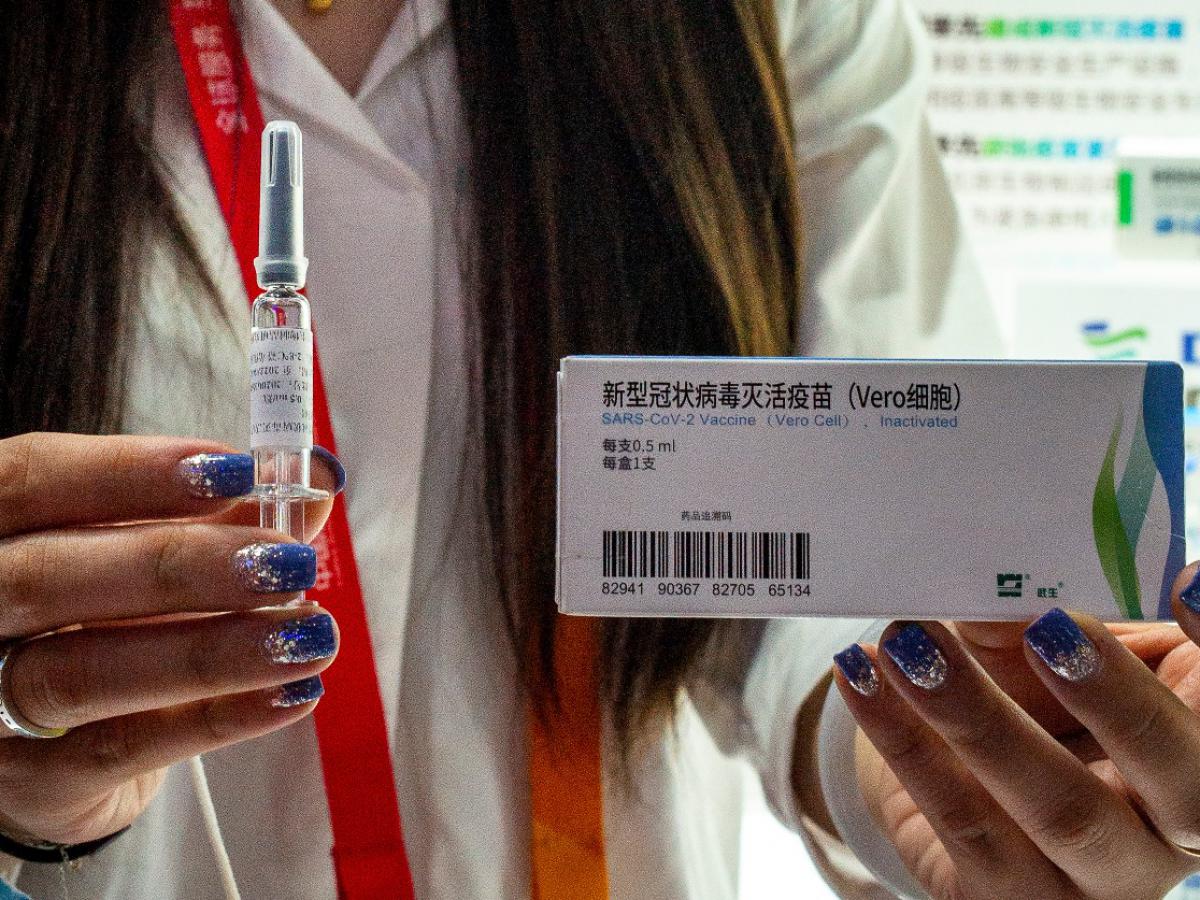
Which coronavirus vaccine is best in the world?

After Brazil assessed the effectiveness of CoronaVac vaccine by Chinese company Sinovac on the verge of acceptable - about 50 percent, other countries that chose the same drug started showing signs of discontent as well.
The Ukrainian population to be vaccinated with CoronaVac
In particular, Ukraine's Minister of Health Maxim Stepanov said that the issue was politicized.
"All manufacturers in the world without exception that produce vaccines, those that have provided reports, the companies that have registered vaccines ... we have been negotiating with them since May. Just like with COVAX. Therefore, all this is about manipulations - some politicians are trying to intimidate the Ukrainians," he said.
Earlier, Stepanov said that Ukraine would purchase the Chinese vaccine if its effectiveness was at least 70 percent. However, on January 11, Lekhim group of pharmaceutical companies announced an agreement with Sinovac for the supplies of five million doses of the drug to Ukraine in the first half of 2021. It is also planned to launch the production of this vaccine in Ukraine in 2022.
Brazil rates CoronaVac on the verge of acceptable
The Butantan Institute and the government of Sao Paulo announced on Monday, January 11, that the effectiveness of CoronaVac in a clinical study conducted in Brazil on 13,000 medical workers, made up 50.38%.
"All the numbers exceed the 50% level required by the WHO (the World Health Organization)," the statement from the Institute said on Tuesday, January 12.
However, the numbers are much lower than the previous ones (78 percent for mild cases and 100 percent - for moderate to severe cases of COVID-19). In addition, 50 percent is the lowest possible efficacy, which means that the vaccine is on the verge of disapproval.
It is worthy of note that Brazil buys other vaccines at the level of separate states. This includes the use of the Russian Sputnik V vaccine.
Why didn't the Philippines buy the best vaccine?
Almost all Asian countries pin their hopes to the Sinovac vaccine.
Philippine Parliament Senator Panfilo Laxon asked on Twitter on January 13, why the government was opting for Sinovac's "more expensive" and less effective COVID-19 vaccine despite higher-rated already available drugs.
According to news.abs-cbn.com website, which cites The Washington Post, Sinovac CEO admitted that he was bribing a Chinese official to speed up the vaccine certification. The website does not rule out the political preference of the Philippine government amid speculation that the choice of the vaccine was due to close ties between the governments of the Philippines and China.
This may raise another question: yes, we prefer to buy from China, but why are we negotiating with a private company, rather than with the state-owned Sinopharm, which has better vaccine performance, abs-cbn.com wonders.
Politicians fear popular unrest
Singapore and Malaysia said they would seek additional performance data from the Chinese company before approving and purchasing components. Malaysia said Wednesday, January 13, that it would continue vaccine procurement only if the drug could meet safety and efficacy standards of local regulatory agencies.
On Thursday, January 14, Manila announced that the vaccines developed by Pfizer (USA) and Gamaleya Research Centre (Russia) were going to arrive in the Philippines in February.
"This is a proof that we do not favor any brands. Whatever drugs may arrive in the Philippines first, we will receive them," senior official Carlito Galvez said.
Analysts told CNN that Brazil's CoronaVac vaccine efficacy level was the lowest among its global competitors could affect international confidence in Chinese-made vaccines.
This is perhaps due to competition in the world as vaccine sales herald huge profits and the "soft power" that can be subsequently acquired afterwards.
Every cook praises his own broth.
Pfizer-BioNTech and Moderna say their vaccines are around 95 percent effective. However, there are doubts about the Pfizer vaccine in terms of side effects (lethal outcomes reported after vaccination) and storage conditions (at minus 70 degrees Celsius).
Russia says its Sputnik V vaccine developed by the Gamaleya Research Centre is 91 percent effective, while the Anglo-American transnational AstraZeneca is 70 percent effective.
Pedro Hallal, an epidemiologist, the dean of the University of Pelotas in Brazil, told the G1 website that social media misinterpret the efficacy rate.
"It is wrong to interpret that the 50-percent effective vaccine generates antibodies in only a half of the vaccinated. It is true that the vaccinated run half the risk of developing the disease compared to those who were not vaccinated. In case of CoronaVac, only 1.8 percent of those vaccinated contracted the virus," said the scientist.
He believes that the overall efficacy rate of 50.38 percent is "less relevant" than high efficacy for serious cases, "because in practice we want to avoid hospitalization and deaths."
Hallal further explained to G1 (Globo) that in relation to herd immunity, the rate of 50.38 percent can be considered low. But using a 50-percent effective vaccine is "infinitely better" than no vaccine at all. "Without a doubt, the vaccine can reduce the circulation of the virus," he added.
Sinovac signed agreements to supply 46 million doses of its coronavirus vaccine to Brazil, 50 million doses to Turkey and 7.5 million doses to Hong Kong. The company will also supply 40 million doses of the vaccine concentrate to Indonesia for local production. Jakarta claims that the CoronaVac efficacy amounts fo 65 percent.